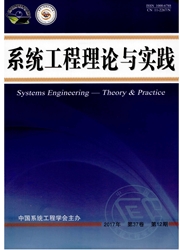

 中文摘要:
中文摘要:
研究由一个风险中性的供应商和一个风险厌恶的零售商组成的二级供应链.为了很好地估计随机需求,零售商聘请专家对需求进行预测.分析在CVaR风险度量准则下,风险厌恶程度对零售商的需求信息预测投入和订货策略的影响.证明了在一定条件下,可以通过回购契约实现供应链协调.研究结果表明在分散决策下,随着零售商风险厌恶程度的增加,零售商对需求信息预测投入会增加,同时订货量随之减少.回购契约可以消除风险规避效应和双重边际效应,使风险厌恶的零售商的信息预测水平和订货量同时达到系统风险中性环境下的最优水平.
 英文摘要:
英文摘要:
We consider a risk-averse retailer who jointly determines the investment of demand information forecasting and the product order quantity from a supplier. Under the conditional value-at-risk (CVaR) criterion, we analyze the impacts of risk-averse degree on the retailer's optimal information forecasting investment and the order policy. In addition, we find that a buyback contract can achieve the coordination of the risk-averse supply chain under certain business conditions. The results show that under the decen- tralized decision situation, the information forecasting investment is increasing in the retailer's risk-averse degree, whereas the order quantity is decreasing in risk-averse degree. The buyback contract can elim- inate the risk-averse and double marginal effects, which makes the retailer choose the same information forecasting investment and order quantity as the situation of risk-neutral centralized system.
 同期刊论文项目
同期刊论文项目
 同项目期刊论文
同项目期刊论文
 期刊信息
期刊信息
